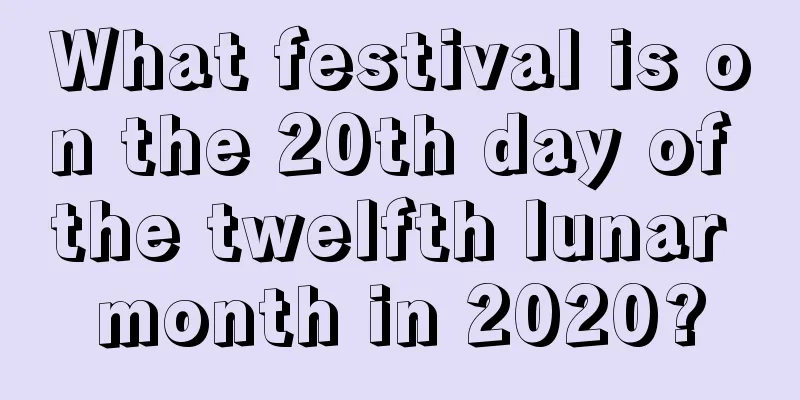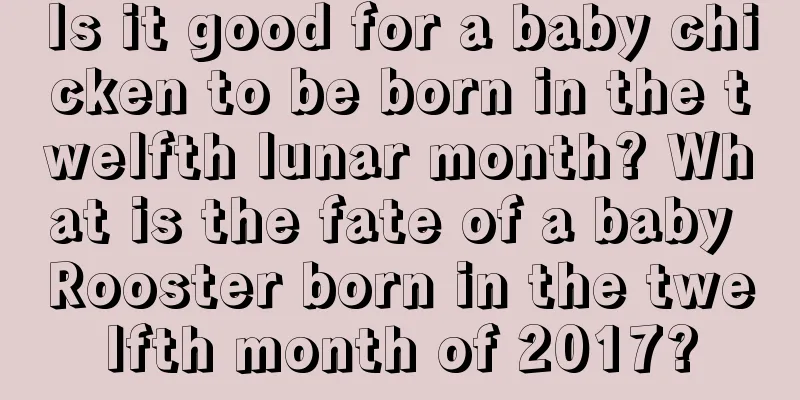What are the customs on New Year’s Eve, eating New Year’s Eve dinner and staying up all night?

Introduction: We all know that New Year’s Eve is the last night of the lunar year and it is the day when the family gets together. When talking about the customs of New Year’s Eve, many people will definitely think of the customs of eating New Year’s Eve dinner and staying up all night on New Year’s Eve. Do you know what other customs are there on New Year’s Eve? How did these customs come about? Next, please follow the editor to learn about it! New Year’s Eve is the most traditional and important festival of our Chinese nation. There are many folk customs and activities during New Year’s Eve. If you want to know more, please check out the New Year’s Eve special topic compiled by Mr. Shui Mo for you!New Year's Eve customs: eating reunion dinnerThe New Year’s Eve dinner is also called the reunion dinner. According to Zong Yan’s "Jingchu Sui Shi Ji", the custom of eating New Year’s Eve dinner has existed at least since the Southern and Northern Dynasties. Because it is winter, people in the north often set up a hot pot in the middle of the dining table, so it is also called "weilu". The dishes for the New Year’s Eve dinner of northerners often include dumplings, fish, rice cakes, long-term dishes, etc. Because dumplings are shaped like gold ingots, they symbolize wealth; the fish dish cannot be finished because in Chinese, "fish" and "surplus" have the same pronunciation, which has the auspicious meaning of "surplus every year"; rice cakes mean "promotion every year"; and eating longevity dishes implies longevity. In South China, there are more chicken, roast pork, hair algae, dried oysters, etc., because "hair algae and dried oysters" is a homophone for "make a fortune and have a good market." A typical New Year’s Eve dinner in Jiangnan must include fish and a hearty soup pot. According to old customs, the traditional seating arrangement on New Year's Eve is "the left is more respected, the east is more respected" and "facing the door is more respected". The chief seat at the annual banquet is the elder with the highest seniority, and the last seat is the one with the lowest seniority. If it is a dinner party, the chief guest is the most respected guest and the host sits at the last seat. Before the chief takes his seat, no one else can take his seat; before the chief takes action, no one else can take action.New Year's Eve customs: staying up all nightStaying up all night on New Year's Eve is a long-standing custom. As early as the Western Jin Dynasty's "Fengtu Ji", there is a clear record of it: "Staying up all night to wait for dawn is called staying up all night." Legend has it that staying up all night is to prevent the invasion of a unicorn, which is most afraid of fire, red and noise. So people wear red clothes, light red lanterns, paste red paper, set off fireworks, burn incense and pray, and stay up all night on New Year's Eve. This is how the custom of "staying up all night" came into being. The book "Annals of the Capital's Sui Shi" records: "Burn silver candles, drink pine wine, and sit until dawn. It is called "Shousui" and is a sign of longevity." In many places, New Year's Eve is also called "Auspicious Night." On this night, adults and children alike must say auspicious words and are not allowed to say unlucky words, dirty words or disrespectful words, otherwise they will have bad luck for the whole year. Therefore, joy, harmony and reunion are the biggest themes of New Year's Eve.New Year's Eve customs: Stepping on the yearOn New Year's Eve, the Chinese people also hold an activity called "Step on the Year". That is, they stick gold ingots rolled with yellow paper on sesame stalks in the yard and put them into a bundle, which is called "cornucopia". Then, the whole family crushes it with their feet, using the Chinese character for broken (broken) to rhyme with the Chinese character for year (old), and borrowing the auspicious meaning of sesame seeds blooming higher and higher, to wish the family prosperity and express their blessings and hopes for the new year.New Year's Eve customs: lucky money and lucky fruitThe ancients were very particular about New Year’s money. The copper coins used should be large and new, and then strung into various shapes with red ropes. Some people wear hundreds of copper coins on their belts, meaning "long life"; others wear auspicious shapes such as carp, ruyi, dragon, etc., meaning "money dragon" or "surplus money" in the hope of bringing good luck. In addition to the elders giving children "lucky money", some areas also have the custom of giving "lucky fruit".On New Year’s Eve, the elders will put oranges, lychees and other fruits next to children’s pillows, with the meaning of “auspiciousness” to wish the children good luck in the coming year. Today's "lucky money" is more direct and pure. It is usually wrapped in exquisite red envelopes with red bills, and then distributed to children to wish for good luck and prosperity. Summary: The four customs introduced in the above article are the most common and representative customs on New Year’s Eve. You can learn about them and feel the connotation and meaning of traditional customs in Chinese traditional culture! After reading this article, there are more exciting content in the New Year’s Eve special topic, let’s take a look! |
Recommend
What will be the fate of a boy born on the 12th day of the seventh lunar month in 2018?
The ancients believed that "Heaven" coul...
Is it okay to hold the signing ceremony on April 29th of the lunar calendar in 2022? How to choose a place?
The fourth month of the lunar calendar is a beauti...
The fate of boys born on February 16th of the lunar calendar in 2022
The fate of a boy is related to the time of his bi...
The 18th day of the 11th lunar month in 2018 is a good day?
The eleventh month of the lunar calendar is the w...
Is it a good idea to get engaged on the beginning of spring in 2022? What should you pay attention to when choosing an engagement date?
Getting engaged also requires choosing a good time...
What are the customs and taboos on the seventh day of the Lunar New Year? Is the omen for that day good or bad?
China is a country that is particularly particular...
Is it good to set up the bed the day before the beginning of summer on July 3, 2020? What is the month and day of the beginning of summer in 2020?
Introduction: It is generally necessary to choose ...
The position of the God of Happiness on the 25th day of the third lunar month in 2020, and the position of the God of Happiness at each hour
The lunar calendar is different for different day...
Is the beginning of spring in 2018 going well? Can I burn incense and pray for blessings on the beginning of spring in 2018?
Introduction: The Beginning of Spring is one of th...
Is April 28th, 2020, a good day? Is it an auspicious day?
Introduction: Every day has its good and bad luck,...
Is April 26th of the lunar calendar 2021 an auspicious day? Is it suitable to go to a 4S store to pick up a new car?
Sophora japonica flowers bloom in April, so it is ...
The position of the God of Wealth on the 9th day of the fourth lunar month in 2022, and the position at different times today
What is the direction of the God of Wealth on the ...
Is it suitable to move house on the fourth day of the ninth lunar month in 2019?
Is it suitable to move house on the fourth day of...
How about the 27th day of the second lunar month in 2021? OK?
Different days have different good and bad fortune...
Where can’t you fly kites during Qingming Festival?
Spring is a good time to fly kites. Qingming Festi...









